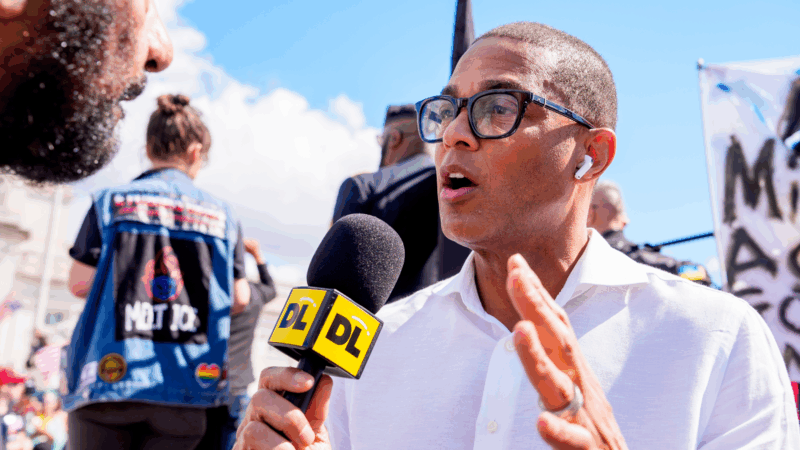Trump issues new travel ban covering a dozen countries
President Trump on Wednesday signed a proclamation banning travelers from 12 countries and partially restricting travelers from seven others, starting on Monday, June 9.
The White House said the action was needed to protect the United States from terrorist attacks and other national security threats, and said the countries lacked screening and vetting capabilities.
The full ban applies to foreign nationals from Afghanistan, Burma, Chad, Republic of the Congo, Equatorial Guinea, Eritrea, Haiti, Iran, Libya, Somalia, Sudan and Yemen.
The partial ban applies to people from Burundi, Cuba, Laos, Sierra Leone, Togo, Turkmenistan, and Venezuela.
In a video statement posted on social media, Trump said the firebombing attack in Boulder, Colo., underscored why the ban was needed. The man charged with that attack is from Egypt, which is not one of the countries listed in the travel ban.
“In the 21st century, we’ve seen one terror attack after another carried out by foreign visa overstayers from dangerous places all over the world,” Trump said in the video statement.
Shawn VanDiver with #AfghanEvac, a nonprofit that helps resettle Afghans in the United States, said that while the Trump administration carved out an exception for special immigrant visas for Afghans who were employed by or on behalf of the U.S. government, “tens of thousands of Afghans with pending cases—especially family members—will now be blocked from reaching safety, regardless of their loyalty to the United States or prior vetting.”
The first travel ban
This new travel ban is the result of an executive order Trump signed on his first day back in the White House. That order called on various agencies, such as the U.S. State Department, to help identify “countries throughout the world for which vetting and screening information is so deficient as to warrant a partial or full suspension.”
Trump also sought to identify how many people from those countries were admitted during the Biden administration, to possibly retroactively suspend their visas.
Trump actively campaigned last year on restoring the travel ban he enacted in his first term. He described it as “unbelievably successful” in preventing terrorism attacks.
The backstory for that first ban is long and complicated.
In December 2015, as he was first running for president, Trump made a dramatic statement calling for a “total and complete shutdown of Muslims entering the United States.” Then, a few days after he first took office, on Jan. 27, 2017, Trump signed an executive order that barred travel from seven Muslim-majority countries: Iran, Iraq, Libya, Somalia, Sudan, Syria and Yemen. The ban was technically temporary — the text specified 90 days.
But the outcry was immediate and swift. There was mayhem at airports and protests around the country as people who had existing visas were detained. There was no mention of the word “Muslim” in Trump’s executive order, but critics say it was clearly advertised as such during his campaign. The ban faced legal challenges. And was blocked by a court.
The Trump administration made some minor revisions, dropping Iraq from the list and allowing exceptions for green card holders and people with pre-existing visas. But courts also struck down that revised version.
Ultimately, after multiple revisions, in the summer of 2018, the Supreme Court in a 5-4 decision backed Trump’s travel ban. In that third iteration that the court upheld, Trump expanded the list of prohibited travelers beyond the Muslim-majority nations to also include people from North Korea and government officials from Venezuela.
The day he was inaugurated in 2021, then-President Joe Biden rescinded Trump’s travel ban. He signed a presidential proclamation titled, “Ending Discriminatory Bans on Entry to the United States.”
But now it seems that was only temporary.
Lawmakers move to place rules on app use by children
For many of us, smartphones are our connection to the world, whether it's messaging friends, watching videos or catching up on the news. That connection gets a little more fraught, though, when the person using the phone is a minor. An Alabama Senate committee this week passed a bill that would put in place new rules around apps and children.
Skier Lindsey Vonn’s Winter Olympic comeback dream is in jeopardy after a crash
Vonn was seen clutching her left knee after crashing in a race in Switzerland on Friday, the last before the Winter Olympics. Her comeback after retiring in 2019 was one of Team USA's biggest stories.
Feds arrest 4, including Don Lemon and Minnesota journalist over church protest
Lemon was taken into custody by federal agents in Los Angeles, where he was covering the Grammy awards, his attorney, Abbe Lowell, said in a statement posted on social media.
‘ChatGPT saved my life.’ How patients, and doctors, are using AI to make a diagnosis
Hundreds of millions of people are turning to chatbots to help figure out what's wrong with them. Doctors say that's not always a bad thing. In fact, many are using it themselves.
Birmingham Museum of Art brings a century of French Modernist works to town
Claude Monet and Henri Matisse may already be household names for fans of Impressionism, French painting or water lilies, but the Birmingham Museum of Art is offering a fresh look into 100 years of French modern art beyond the famed Frenchmen. It’s all in their newest exhibit Monet to Matisse: French Moderns, 1850–1950, opening Friday.
Trump taps Kevin Warsh to lead the Federal Reserve
Trump plans to nominate Kevin Warsh to be the next chair of the Federal Reserve, when Jerome Powell's term expires in May. The president has been pushing the central bank to slash interest rates.








